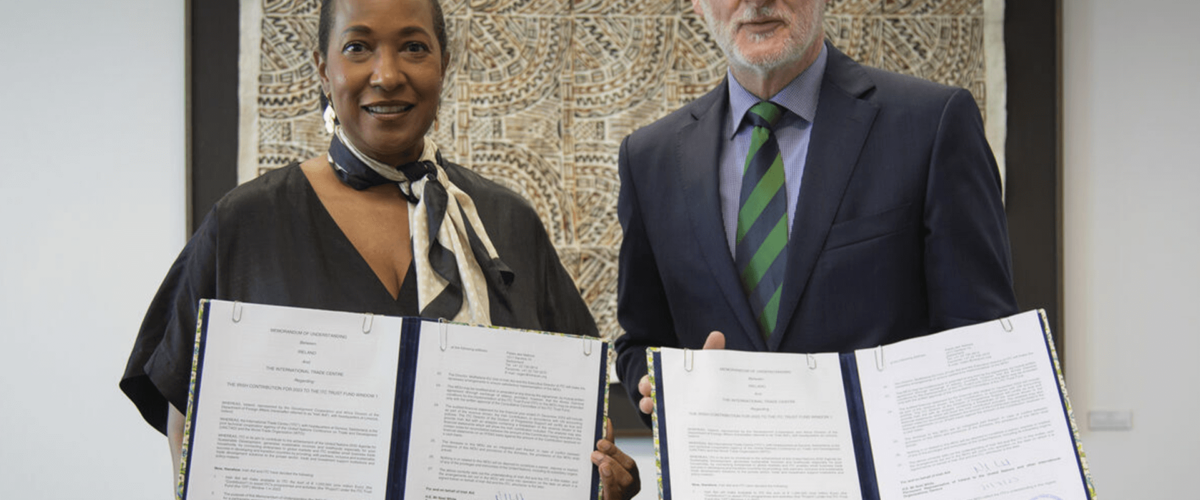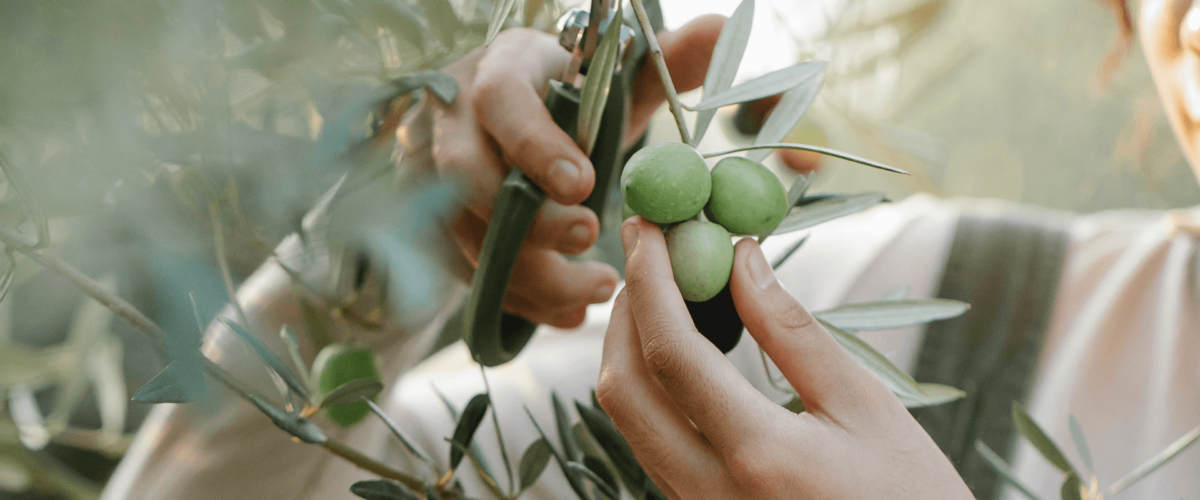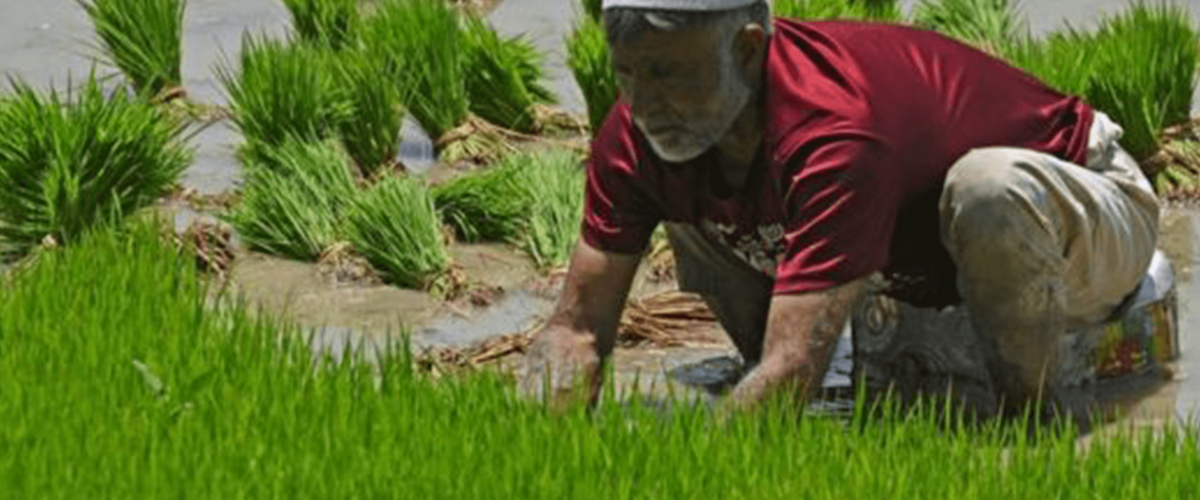(Geneva) – Ireland has committed €1 million to support the International Trade Centre (ITC) throughout 2023.
ITC Executive Director Pamela Coke-Hamilton and H.E. Ambassador Noel White, Permanent Representative of Ireland to the United Nations and other International Organizations at Geneva, today signed the grant agreement at ITC in Geneva.
The funds provide flexibility and predictability for ITC to implement its Operational Plan 2023 and to achieve the Sustainable Development Goals (SDGs). The agreement reaffirms the alignment of ITC and Ireland’s development priorities by focusing on enhancing the competitiveness of small businesses, addressing global peace and prosperity, and prioritizing the needs of the most vulnerable in least developed countries.
‘This contribution reflects the importance Ireland attaches to the work of ITC and our ongoing commitment to a positive partnership. Our policy for international development seeks to put the ‘furthest behind first’. Through our partnership with ITC, we are helping developing countries, including least developed countries, to meet the challenges of the ‘four Cs’ of COVID, climate, conflict and cost-of-living.’
H.E. Ambassador Noel White, Permanent Representative of Ireland to the United Nations and other International Organizations at Geneva
‘Ireland is a reliable, long-term partner of ITC, and we are grateful for our continuing collaboration. Together, we’re supporting key players in the global economy – small businesses in developing countries – to navigate crises and changes in the trading landscape. The flexible core financing provided by Ireland allows us to quickly respond to the needs of our clients so they can play a role in inclusive and sustainable trade-led development.’
Pamela Coke-Hamilton, Executive Director, International Trade Centre (ITC)
About the International Trade Centre: The International Trade Centre is the joint agency of the World Trade Organization and the United Nations. ITC assists micro, small and medium-sized enterprises in developing countries to become more competitive in global markets – thus contributing the United Nations Sustainable Development Goals. For more information, visit www.intracen.org.



